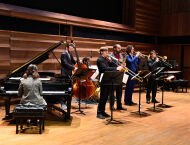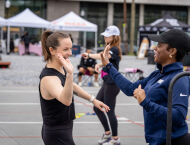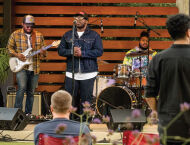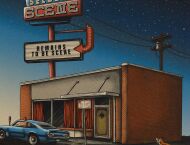Music
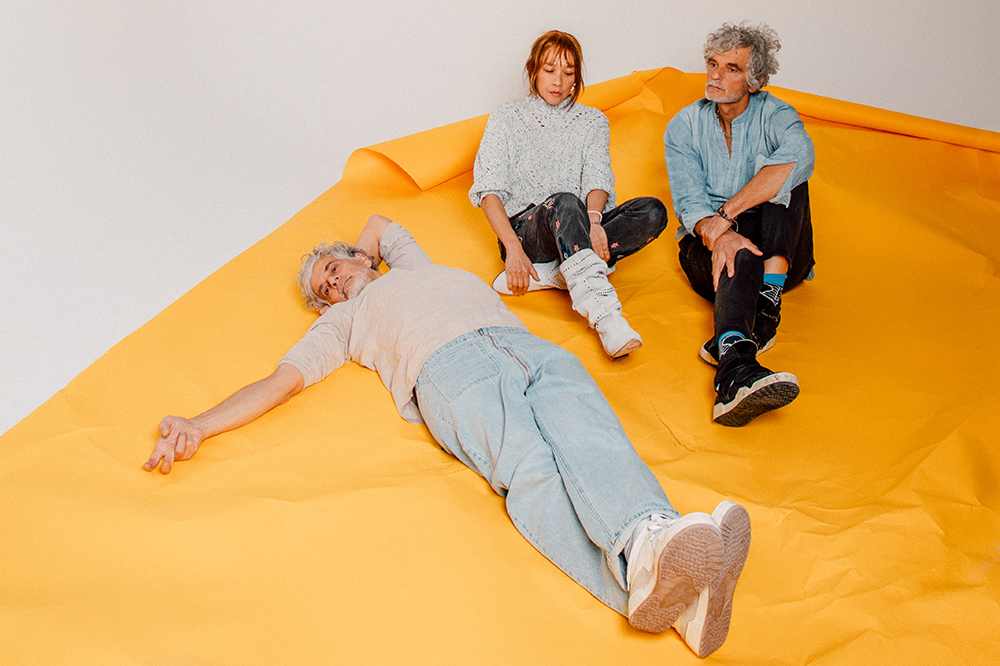 Blonde Redhead. Photo by Charles Billot.
Blonde Redhead. Photo by Charles Billot.
Communal Grief Brings Blonde Redhead Back Together for Stunning New Album
November 8, 2023 @ 8:00am
Kazu Makino of Blonde Redhead shares a peek behind the curtain on the making of their new album, being on tour, and a changing relationship with grief.
Blonde Redhead took nearly a decade between their last record and the release of 2023’s glimmering, pensive “Sit Down for Dinner,” but Kazu Makino (who provides vocals, keys and rhythm guitar) never stopped making music. Even as the world came to a screeching halt in 2020 due to the pandemic, Makino and her bandmates Simone and Amedeo Pace were eventually brought back together to begin making what would soon become one of 2023’s most lauded releases.
Ahead of their stop in D.C., District Fray spoke to Makino about the genesis of “Sit Down for Dinner,” how Covid grief shaped their new work, and the curse of making plans.
District Fray: “Sit Down for Dinner” is your first album in nearly ten years and already has cropped up on early best of 2023 lists. How does that reception feel?
Kazu Makino: Good, very good. It’s still a surprise to me, you know? You almost expect to be punished somehow. Maybe I’m just that kind of a person. It always comes as a surprise when people really get you. I’m genuinely surprised but also super flattered.
Nine years is a long time, but the understatement of the century is how much changed in the particular nine years between these two albums. How did you bring everything you all went through, individually and as a group, to the table to make this record?
I generally didn’t know we were going to make this album. My life’s been just all to do with music, so I never questioned that part. I tried to make it as a solo artist. I made a solo record that I was really, extremely happy with but it didn’t receive the kind of flattering reception as this one is getting. Then I was kind of forced to be back in New York because of the pandemic.
So what I think about the whole thing now is, that you really can’t plan anything. Your plan could just go out the window and could just be nothing in a split second. You can’t make plans and yet, you have all these intangible dreams in you about music, and you don’t know what form it will come out in. I never walked away from music. So when it came to this [record], I had a lot to say and I had a lot to offer. That’s what time does to you — you accumulate a lot of music inside until you finally let it out. And that’s a blessing, that we had enough perseverance to finish it.
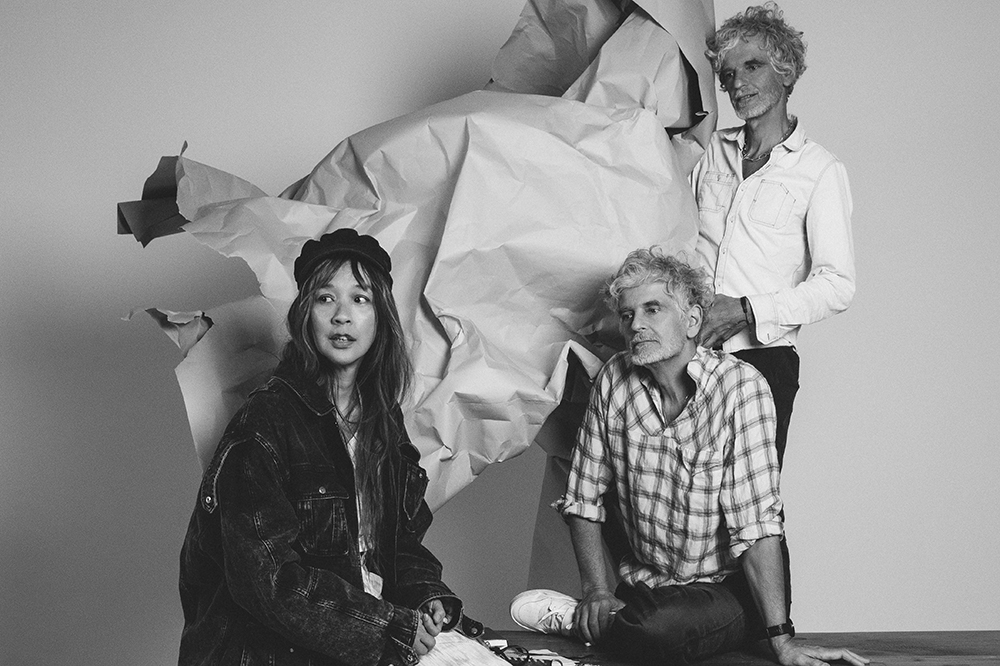
Blonde Redhead. Photo by Charles Billot.
I’m glad that you all did. Was there a lightbulb moment when it came to putting together “Sit Down for Dinner” where the three of you said, “okay, we’re doing this?” A lyric, a chord, or anything that spawned its growth?
I had this song that became “Kiss Her Kiss Her.” For a long time I was really pondering if I could make it as a solo song or if it was to be shared with the band. I knew the song was super special. And even in the process of producing it as a band, I had to protect and defend that quite strongly. When a song idea is good, everybody wants to have a go at it. But then I would say, “sounds good, but I really still think I’m gonna go with my initial instinct and idea.” There were all kinds of moments like that we went through with each song.
I hear a thin veil of grief within this album, especially given the title of the record and its relation to Joan Didion’s The Year of Magical Thinking, where she writes: “Life changes fast. Life changes in the instant. You sit down to dinner and life as you know it ends.” Tell me more about that.
Inevitably, [during the pandemic] we were living in the most catastrophic time. But at the same time, music became even more of a safe haven. The best way to kill time is making music — time passes so fast when you work on music. I don’t know how the music itself kept kind of optimistic, when what we were living through was quite dark. And everything that I wrote was quite dark. The music we’d pair with was not, I didn’t find it so dark. So that was kind of a relief for me — that I could place it on something that’s so breezy, say something compelling and just keep moving.
And it felt like I was being pushed from behind, and the music was that kind of a wind. At the time [of writing] through such an intense period, we were able to talk about death casually. As in, “Maybe I am the next one to go, I don’t know.” There was this newly born faith about life and death.
What has life back on the road been like for you, Kazu?
I’m having a good time. We have this new generation of an informed and knowledgeable crew, which makes the whole thing go very smooth. We have a beautiful backdrop. And I’m just so happy to know that vocal cord muscles came back to me. I wasn’t sure what I’d be able to do because after having Covid, I kind of lost control [of them]. I went to a university hospital to find out if I could be rehabilitated. The doctor was like, “Yeah, we’ve been seeing artists with similar symptoms to you, not having control. I think [Covid] kills off some nerves in there.”
I was really worried, and I was doing very basic rehab exercises. But then after a few shows, it just came back full-on. It’s strong enough that I feel like, “is it me singing?” Sometimes I have this feeling that even if I stopped singing, the microphone would keep going. That it feels almost alien-like. I’m enjoying that a lot.
Blonde Redhead plays The Howard Theatre on Thursday, November 9 at 7 p.m. Tickets range from $30-$60 and can be purchased here. Listen to Sit Down for Dinner wherever you stream music now. Keep up with the band at blonde-redhead.com and follow them on Instagram @blonderedheadofficial.
The Howard Theatre: 620 T St. NW; thehowardtheatre.com // @howardtheatre
Want behind-the-scenes glimpses into the best albums of the year? Join the District Fray community to access more. Become a member and support local journalism today.



